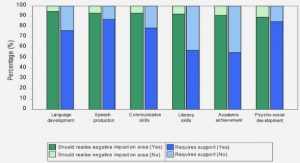Get Complete Project Material File(s) Now! »
Factors considered impor tant by SMEs
Some start-up busines ses are influenced by the history or the track record of the investment company when choosing a venture capital company. Such start-ups will be more selective when choosing a working partner , more especially those managed by entrepreneurs with good track record and small business experience (Ross et al . 1996:332) .
There are some key considerations, which are important to SMEs in such instances, some of which can be summarised as follows (Ross et al . 1996:333) :
Contribution of management skills by the venture capital providers
Since most start-ups do not last long due to limited resources in the form of management skills and venture capital , Sirtaine (2006:16) argues that the contribution of the above mentioned resources could make SMEs to last longer . Even before securing financing, it is important for ent repreneurs to understand the cost structures of business, which many firms , do not . Realistically estimating the required start-up costs can be challenging ; it requires an entrepreneur to estimate both recurring and non-recurring costs .
Most prospective entrepreneurs have no management accounting skills, such as budget ing ( Jones & Tul los 2002:234) . Venture capital provider dealing with this type of entrepreneur find it chal lenging because the financial estimations provided are not always relable, as inexperienced people have prepared them.
Therefore, entrepreneur will need the support of a venture capitalist that can provide both capital , f inancial and management accounting skills.
DIFFICULTIES EXPERIENCED BY SMEs IN ACCESSING VENTURE CAPITAL FUNDING
There are a number of difficulties experenced by SMEs in accessing venture capital . Some venture capitalsts prefer to finance start-up companies in stages, as they are perceived as being very rsky. The maximum number of stages applicable to SMEs are three. These stages have been created to reduce risks and further financing is conditional based on the results of the first stage.
Stage one financing might be enough to get a prototype bui and a manufacturing plan completed. Based on the results of the first stage, the second -stage financing might be a major investment needed to actually begin manufacturing, marketing and distribution. The second stage finance is conditional and is most influenced by the outcomes of first stage (Ross et al . 1996:332) . Even if funds are available in stages , there are other problems which start-up companies encounter .
Percept ions as an obstacle to finance
There are a number of per cept ions associated wi th SMEs. A major per cept ion for banks is that asses s ing the r is k as soc iated wi th SMEs i s both di f f i cul t and cost l y (Cohan 2006:52) . Inabi l i t y of commer cial banks to suppor t SMEs i s due to the high degree of r i s k invol ved, high los s and prof i t s as sociated wi th SMEs (Schoombee 2000:2) . Lending to SMEs is more cos t ly than le nding to large companies as the returns earned on smal l busines s es are low.
Overal l , smal l busines s loans are les s prof i table for provider s than large bus ines s loans due to admini st rat ion costs (Chur chi l l & Lewi s 1985:193, Knot t 2004:156 ; Cohan 2006:53 ) . “Two major impediments to rai s ing capi tal for smal l busines ses are that these busines ses have vi r tual l y no abi l i ty to guarantee debts and thei r potent ial equi t y markets cons i st pr imar i l y of the fami l y and c lose f r iends of the propr ietor or par tners ” (Maier & Walker 1987: 208) .
The amount of capi tal that can be bor rowed by SMEs as compared to companies al so makes the percept ion against ser ving SMEs to grow (Gregor y et al . 2005:385) .
CHAPTER 1: INTRODUCTION AND RESEARCH PROBLEM
1.1 INTRODUCTION
1.2 BACKGROUND OF THE STUDY
1.3 PROBLEM STATEMENT
1.4 PURPOSE OF THE STUDY
1.5 OBJECTIVES OF THE STUDY
1.6 IMPORTANCE OF THE STUDY
1.7 EMPIRICAL RESEARCH
1.8 DATA ANALYSIS
1.9 ORGANISATION OF THE STUDY
CHAPTER 2: THE CURRENT SITUATION WITH REGARD TO THE VENTURE CAPITAL MARKETS AND SMES
2.1 INTRODUCTION
2.2 THE ORIGIN OF VENTURE CAPITAL
2.3 VENTURE CAPITAL
2.4 VENTURE CAPITAL PROVIDERS
2.5 TYPES OF FUNDS
2.6 MINIMUM REQUIREMENTS FOR SMEs TO SECURE FUNDS FROM VENTURE CAPITAL CAPITALISTS
2.7 DIFFICULTIES EXPERIENCED BY SMEs IN ACCESSING VENTURE CAPITAL FUNDING
2.8 FINANCIAL INSTITUTIONS: BANKS
2.9 ALTERNATIVE SOURCES OF CAPITAL APPLICABLE TO SMEs IN THE PAST
2.10 STATUS OF THE SMALL BUSINESS SECTOR
CHAPTER 3: MANAGEMENT ACCOUNTING SKILLS AND OTHER INFORMATION REQUIRED BY VENTURE CAPITAL PROVIDERS
3.1 INTRODUCTION
3.2 MANAGERIAL SHORTCOMINGS
3.3 MANAGEMENT ACCOUNTING SKILLS
3.4 FINANCIAL INFORMATION REQUIRED BY MOST VENTURE CAPITALISTS
3.5 MANAGEMENT ACCOUNTING SKILLS REQUIRED TO SECURE A LOAN
3.6 OTHER FACTORS CONSIDERED IMPORTANT FOR SECURING A LOAN
3.7 REASONS WHY LOAN APPLICATIONS ARE TURNED DOWN BY VENTURE CAPITAL PROVIDERS
CHAPTER 4: RESEARCH METHODOLOGY
4.1 INTRODUCTION
4.2 DATA COLLECTION AND ANALYSIS METHOD
4.3 POPULATION, SAMPLE SIZE AND GEOGRAPHICAL RESEARCH AREA
4.4 RESPONSE RATES
4.5 DESIGN OF QUESTIONNAIRE
4.6 LIMITATIONS OF THE EMPIRICAL SURVEY
4.7 SUMMARY
CHAPTER 5: RESULTS OF THE RESEARCH
CHAPTER 6: CONCLUSION AND RECOMMENDATIONS
BIBLIOGRAPHY
GET THE COMPLETE PROJECT
THE GAP IN MANAGEMENT ACCOUNTING SKILLS REQUIRED BY VENTURE CAPITAL PROVIDERS AND THOSE POSSESSED BY SMALL AND MEDIUM ENTERPRISES IN THE CRAFT INDUSTRY






